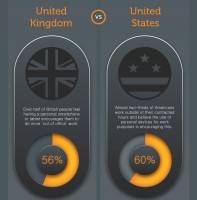June 24, 2013
UK and U.S. workers more likely to experience workplace bullying
The Coalition government has criticised “over-regulated” UK employment law, which it argues makes it difficult for employers to manage employees without risk of being sued for unfair treatment. Yet despite the perception that UK employees are overly-protected by employment regulations, a new global study of white collar bullying has revealed that workers are in fact more likely to experience bullying at the hands of their bosses if they work in the UK or the U.S. The country a company is based in has a direct effect on how much workplace bullying is accepted and the UK and the U.S. were among the countries with a “high performance orientation” valuing accomplishments, a sense of urgency and explicit communication. These countries, say the authors, may tolerate bullying if it is seen as a means to achieve better results. More →



























June 21, 2013
Managing a work-life balance isn’t solely a women’s issue
by Sara Bean • Comment, Flexible working, Legal news, News, Workplace
Two reports published this week show that a cultural change is needed to stop employers assuming only female workers have families or other personal concerns that could impact on their workplace performance. A report into workplace equality by the Business, Innovation and Skills Committee (BIS) has called on the UK Government to do more to tackle female underrepresentation in sectors of the economy and to dispel the myth that any type of flexible working is a ‘women’s issue,’ problematic and cannot work. In the US a study by employee assistance providers Bensinger, DuPont and Associates (BDA) into stress has found that men are more than twice as likely to receive formal disciplinary action when the stress of a personal problem impacts on their work performance. More →